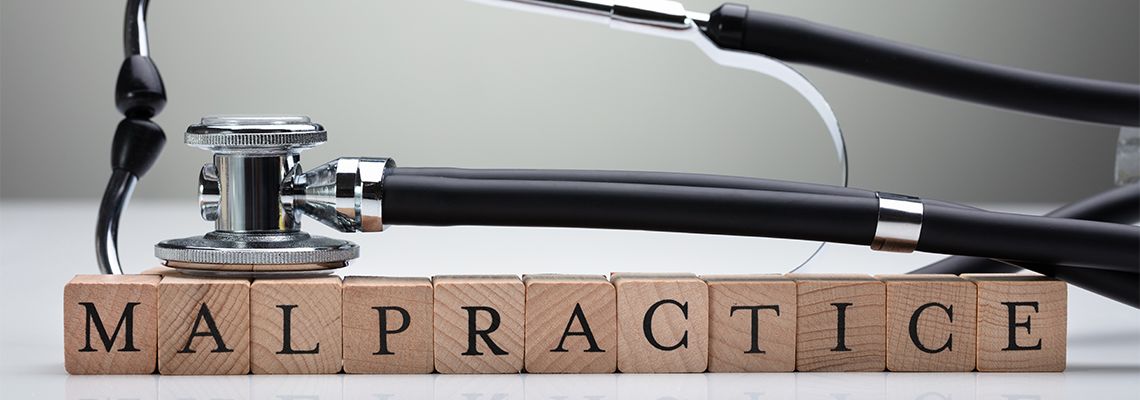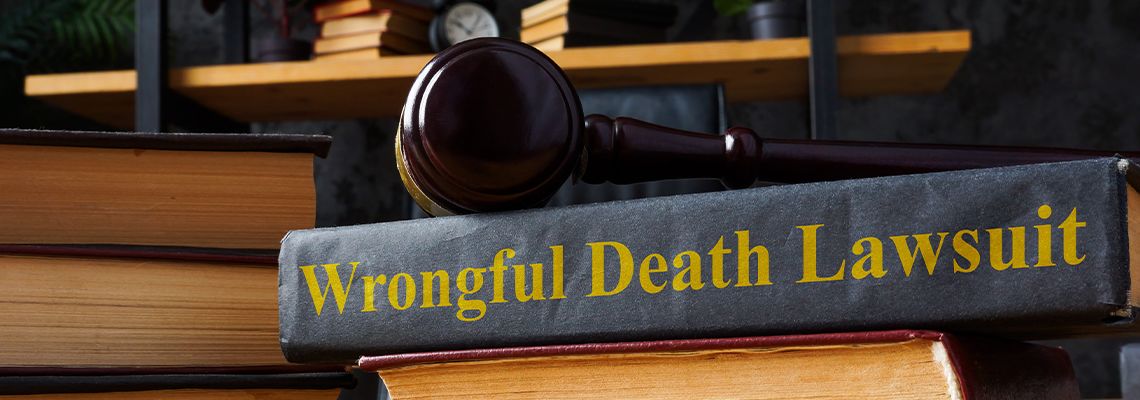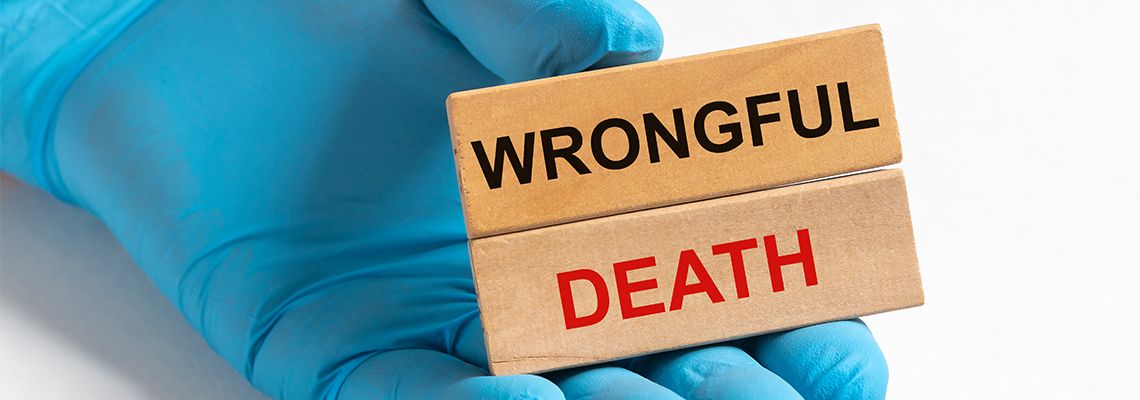The sudden loss of a loved one leaves families in Louisiana grieving and wondering how they’ll cover household bills. Wrongful death damages range from future paychecks to bedtime stories never told, and each element carries its own proof requirements within Louisiana’s civil code.

The Impact of Expert Testimony on Medical Malpractice Claims
Medical malpractice claims often require testimony from professionals in the healthcare field. Courts rely on these witnesses to explain medical standards, evaluate whether a healthcare provider's actions were appropriate, and determine if negligence occurred.
Without their input, jurors may struggle to understand the medical aspects of a case. Their explanations help bridge the gap between complicated medical concepts and legal standards, making it easier for juries to reach informed decisions.
Attorney Thomas Corrington works with knowledgeable witnesses to support clients in medical malpractice claims. These individuals help clarify whether a doctor, nurse, or other healthcare professional deviated from the accepted standard of care.
Their testimony can significantly affect case outcomes, influencing both liability and compensation decisions. Given the high stakes in these claims, the selection and presentation of witness testimony must be handled with precision and care.
Qualifications and Selection of Medical Witnesses
Selecting a credible witness is one of the most important steps in a medical malpractice claim. Courts typically require these witnesses to have relevant experience and credentials in the field related to the alleged negligence. A well-qualified witness can add credibility to a claim and improve the chances of a favorable outcome for the plaintiff.
Factors that contribute to a witness's credibility include:
Medical background: The witness should have an active or recent history in the same specialty as the defendant.
Board certifications: While not always required, these can help establish authority.
Publications and teaching roles: Academic contributions and experience educating others may strengthen credibility.
Previous testimony history: A balanced history of plaintiff and defense testimonies can indicate impartiality.
Beyond qualifications, the demeanor and communication style of a witness can also influence their effectiveness. A witness who speaks confidently and clearly can make a stronger impact on jurors.
Conversely, a witness who appears uncertain or defensive may inadvertently weaken a claim. It’s crucial that witnesses are well-prepared and understand the details of the case thoroughly.
How Medical Testimony Supports Negligence Claims
Medical malpractice claims depend on proving that a healthcare provider failed to meet the standard of care, causing harm to the patient. Witnesses play a key role in explaining these elements.
Without their testimony, it would be difficult to establish negligence, as the medical field has numerous variables that can affect patient outcomes. A witness must effectively demonstrate that the provider’s actions were not just a mistake but a clear violation of established medical standards.
Ways a medical witness supports a claim include:
Defining the standard of care: Establishing what a competent provider would have done in the same situation.
Identifying breaches in care: Pinpointing where the provider deviated from accepted practices.
Explaining causation: Connecting the provider’s actions to the patient’s injury or worsened condition.
Providing clarity for jurors: Breaking down medical terminology and procedures into understandable terms.
A witness's testimony must be clear and supported by medical literature, clinical guidelines, or personal experience in treating similar cases. Additionally, their explanations must be compelling enough to counter any opposing testimony presented by the defense.
Common Challenges When Presenting Medical Testimony
Medical malpractice claims often face challenges when presenting testimony, as opposing lawyers may attempt to discredit witnesses or introduce conflicting opinions. Medical testimony is one of the most scrutinized aspects of these claims, and attorneys must anticipate potential obstacles that could weaken their case.
Obstacles that can arise include:
Conflicting testimony: Defense witnesses may argue that the provider acted appropriately.
Bias accusations: Opposing counsel may claim a witness is a "hired gun" rather than an objective source.
Technical nuances: If testimony is too technical, jurors may not fully understand its significance.
State requirements: Some states have strict qualifications for medical witnesses, making it harder to find an eligible individual.
To address these challenges, witnesses must be well-prepared, familiar with case details, and capable of explaining complicated concepts in a straightforward manner. Lawyers handling medical malpractice claims must also work closely with witnesses to rehearse testimony, anticipate cross-examination questions, and prepare for any potential challenges.
The Influence of Witness Testimony on Case Outcomes
The strength of a medical malpractice claim often depends on the persuasiveness of witness testimony. A clear, well-supported explanation can strengthen a plaintiff’s case, while weak or confusing testimony may lead to case dismissal. Testimony is one of the most influential factors in determining whether a claim succeeds or fails.
Ways testimony impacts case outcomes include:
Establishing liability: A strong witness can clearly demonstrate that negligence occurred.
Determining damages: Testimony may influence the calculation of medical costs, lost income, and pain and suffering.
Affecting settlement negotiations: Well-prepared testimony can encourage fair settlement offers, avoiding lengthy trials.
Persuading jurors: A confident and articulate witness may be more convincing to a jury.
Strong testimony backed by medical evidence often leads to better case outcomes, making witness selection a critical component of a successful claim. In many cases, a compelling witness can sway the jury, helping them understand how the provider’s actions caused harm to the patient.
The Basics of Witness Testimony in Appeals
Even after a case is decided, medical testimony can continue to influence legal proceedings during an appeal. If a medical malpractice claim does not result in a favorable outcome, attorneys may seek to challenge the decision by questioning the validity of testimony used in the trial.
Ways testimony affects appeals include:
Questioning witness qualifications: If a witness lacked proper credentials, it could be grounds for appeal.
Highlighting errors in testimony: Any inconsistencies or misstatements may impact the court’s ruling.
Challenging the interpretation of evidence: New expert reviews may present alternative explanations for medical outcomes.
Medical testimony is not only critical in the initial case but also plays a role in post-trial motions and appeals. A well-documented and credible expert opinion can be the difference between an overturned ruling and a failed appeal.
How Medical Witnesses Influence Jury Perceptions
Jurors in medical malpractice cases are typically not trained in medicine, making it essential for witnesses to present testimony in a way that’s accessible and easy to understand. The way testimony is delivered can shape jury opinions and ultimately influence case outcomes.
Key factors that impact jury perception include:
Clarity of explanation: Testimony should be straightforward and free from excessive medical jargon.
Confidence and professionalism: A witness who speaks authoritatively is more likely to be believed.
Consistency with medical records: Any contradictions between testimony and documentation can weaken credibility.
Nonverbal communication: Eye contact, posture, and tone can affect how testimony is received.
Because jury decisions are often based on how well they understand the presented evidence, lawyers must work with medical witnesses to refine their testimony for maximum impact.
The Basics of Witness Testimony in Out-of-Court Resolutions
Not all medical malpractice claims go to trial. Many cases are resolved through mediation or arbitration, where testimony can still play a crucial role. Instead of persuading a jury, witnesses in these settings may need to convince arbitrators, mediators, or insurance adjusters of the legitimacy of a claim.
Testimony impacts alternative dispute resolutions by:
Providing authoritative assessments of negligence
Helping establish fair settlement values
Clarifying disputed medical facts
Strengthening a plaintiff’s bargaining position
In out-of-court settings, a strong medical witness can encourage more favorable settlements without the need for prolonged litigation.
Contact The Corrington Law Firm Today
Medical malpractice cases can be challenging, and credible medical testimony is essential to proving negligence. Attorney Thomas Corrington at The Corrington Law Firm works with highly qualified witnesses to build strong cases for clients. The firm serves clients in New Orleans, Louisiana. If you’ve suffered due to medical negligence, call today to discuss your options.
RECENT POSTS
Losing a loved one to someone else’s negligence leaves families grieving and facing new bills all at once. Because Louisiana’s civil code limits who may sue and which losses qualify, early legal guidance keeps cases focused on damages the court can actually award.



